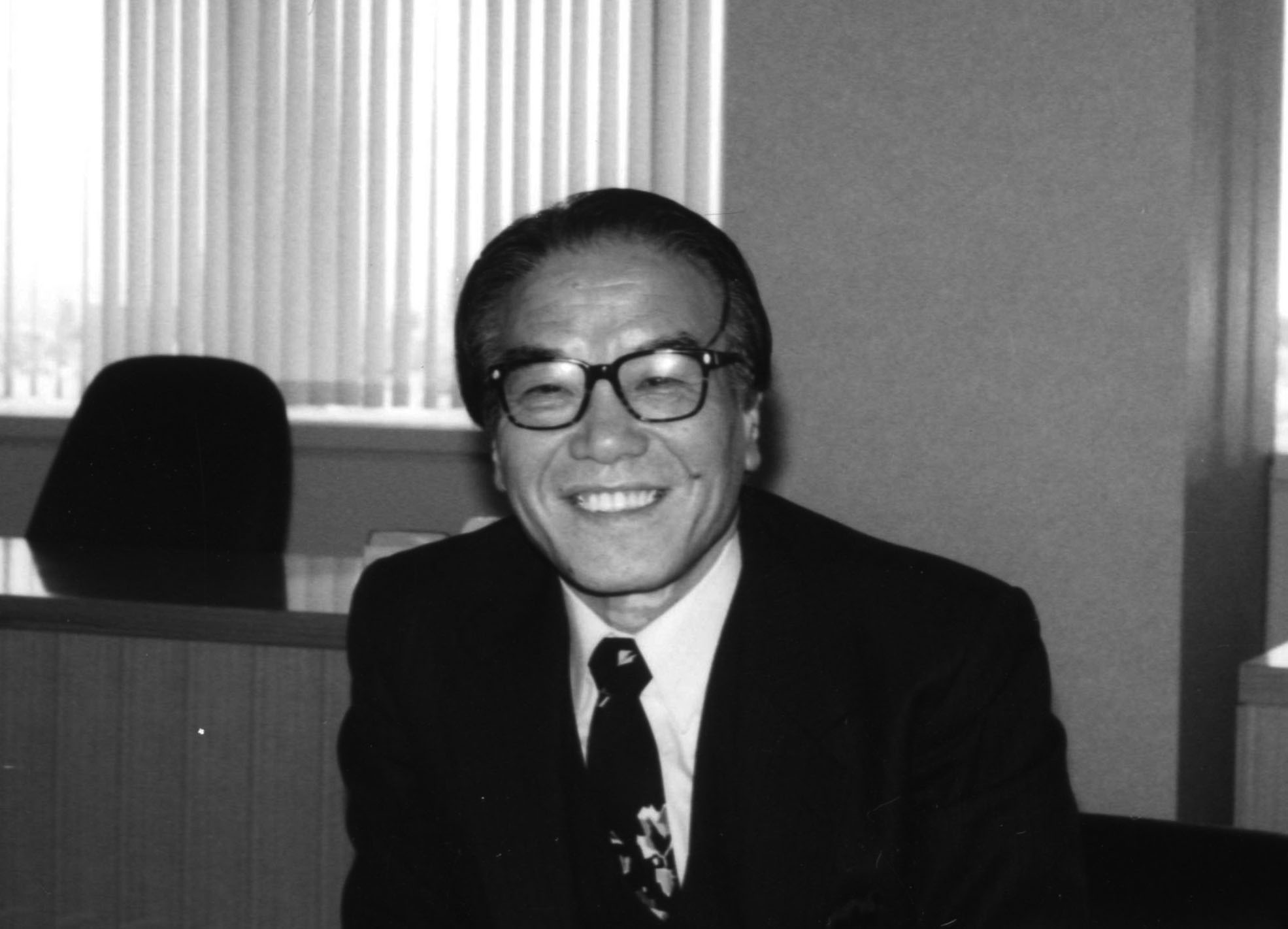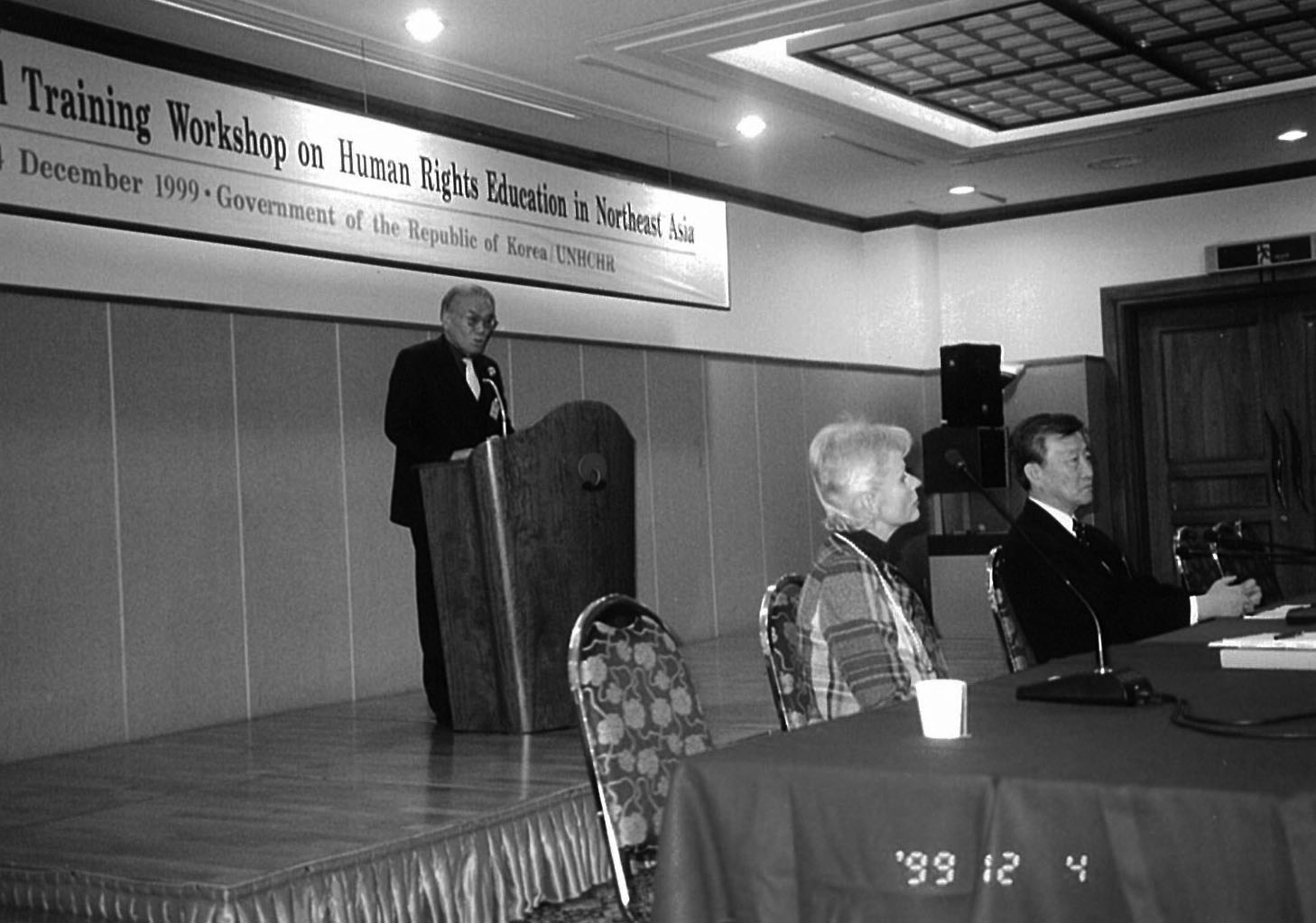- TOP
- 国際人権基準の動向
- FOCUS
- March 2015 - Volume Vol. 79
- Professor Dong-hoon Kim: A scholar whose action was consistent with his thought
FOCUS March 2015 Volume Vol. 79
Professor Dong-hoon Kim: A scholar whose action was consistent with his thought
Most dictionaries define international law as the law governing relations among states. However, the character of international law radically changed after the Second World War. The inclusion of the human rights promotion and protection provision in the United Nations Charter integrated human rights law into international law; thus extending the reach of international law to relations between states and individuals. This epoch-making change in international law met strong resistance; consequently, international human rights law took a long time to be recognized as a specific field of law study.
 In Japan, Professor Dong-hoon Kim was one of those who worked hard for the recognition of the international human rights law as a legitimate field of law study. He was a disciple of one of the pioneer legal scholars on international human rights law in the country, the late Professor Shigejiro Tabata, who organized the Kyoto International Law Research Association.
In Japan, Professor Dong-hoon Kim was one of those who worked hard for the recognition of the international human rights law as a legitimate field of law study. He was a disciple of one of the pioneer legal scholars on international human rights law in the country, the late Professor Shigejiro Tabata, who organized the Kyoto International Law Research Association.
Professor Kim showed his admiration for Professor Tabata by dedicating his major lifetime work, the book entitled Kokusaijinkenhou to Mainoriti no Chii (International Human Rights Law and the Status of Minorities), to Professor Tabata.
But Professor Kim was not only a scholar; he was also an activist. He was very much a part of the domestic human rights movement that pressured the Japanese government to ratify various international human rights conventions. He was also part of the international human rights movement on the elimination of all forms of discrimination. He helped in the founding of the International Movement Against All Forms of Discrimination and Racism (IMADR), the first Japan-based international human rights non-governmental organization to obtain a consultative status with the United Nations Economic and Social Council (ECOSOC).
Professor Kim was involved in the founding of the Asia-Pacific Human Rights Information Center (HURIGHTS OSAKA), and subsequently became its first Director in 1994. He was involved in both domestic and regional activities of HURIGHTS OSAKA. Despite his many commitments as academic and activist, Professor Kim implemented the objectives of HURIGHTS OSAKA through projects and activities that were meant to serve the Asia-Pacific region. 
After retiring from his teaching post at the Ryukoku University, where he was Professor Emeritus, and as Director of HURIGHTS OSAKA, Professor Kim continued to actively facilitate collaboration among the people in Japan and South Korea, his home country.
On 15 May 2014, Professor succumbed to cancer. He was a loss to the human rights movement in Japan and beyond. He was a scholar whose action was consistent with his thought.
Makoto Kubo teaches international law at the Osaka Sangyo University.
